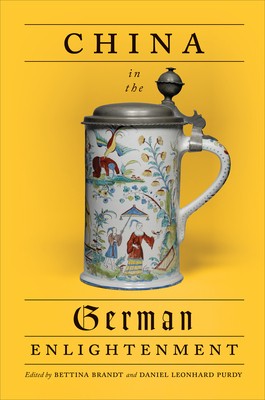
- We will send in 10–14 business days.
- Publisher: University of Toronto Press
- ISBN-10: 148754555X
- ISBN-13: 9781487545550
- Format: 15 x 22.6 x 1.5 cm, softcover
- Language: English
- SAVE -10% with code: EXTRA
China in the German Enlightenment (e-book) (used book) | bookbook.eu
Reviews
Description
Over the course of the eighteenth century, European intellectuals shifted from admiring China as a utopian place of wonder to despising it as a backwards and despotic state. That transformation had little to do with changes in China itself, and everything to do with Enlightenment conceptions of political identity and Europe's own burgeoning global power.
China in the German Enlightenment considers the place of German philosophy, particularly the work of Leibniz, Goethe, Herder, and Hegel, in this development. Beginning with the first English translation of Walter Demel's classic essay How the Chinese Became Yellow, the collection's essays examine the connections between eighteenth-century philosophy, German Orientalism, and the origins of modern race theory.
EXTRA 10 % discount with code: EXTRA
The promotion ends in 18d.19:10:29
The discount code is valid when purchasing from 10 €. Discounts do not stack.
- Publisher: University of Toronto Press
- ISBN-10: 148754555X
- ISBN-13: 9781487545550
- Format: 15 x 22.6 x 1.5 cm, softcover
- Language: English English
Over the course of the eighteenth century, European intellectuals shifted from admiring China as a utopian place of wonder to despising it as a backwards and despotic state. That transformation had little to do with changes in China itself, and everything to do with Enlightenment conceptions of political identity and Europe's own burgeoning global power.
China in the German Enlightenment considers the place of German philosophy, particularly the work of Leibniz, Goethe, Herder, and Hegel, in this development. Beginning with the first English translation of Walter Demel's classic essay How the Chinese Became Yellow, the collection's essays examine the connections between eighteenth-century philosophy, German Orientalism, and the origins of modern race theory.


Reviews